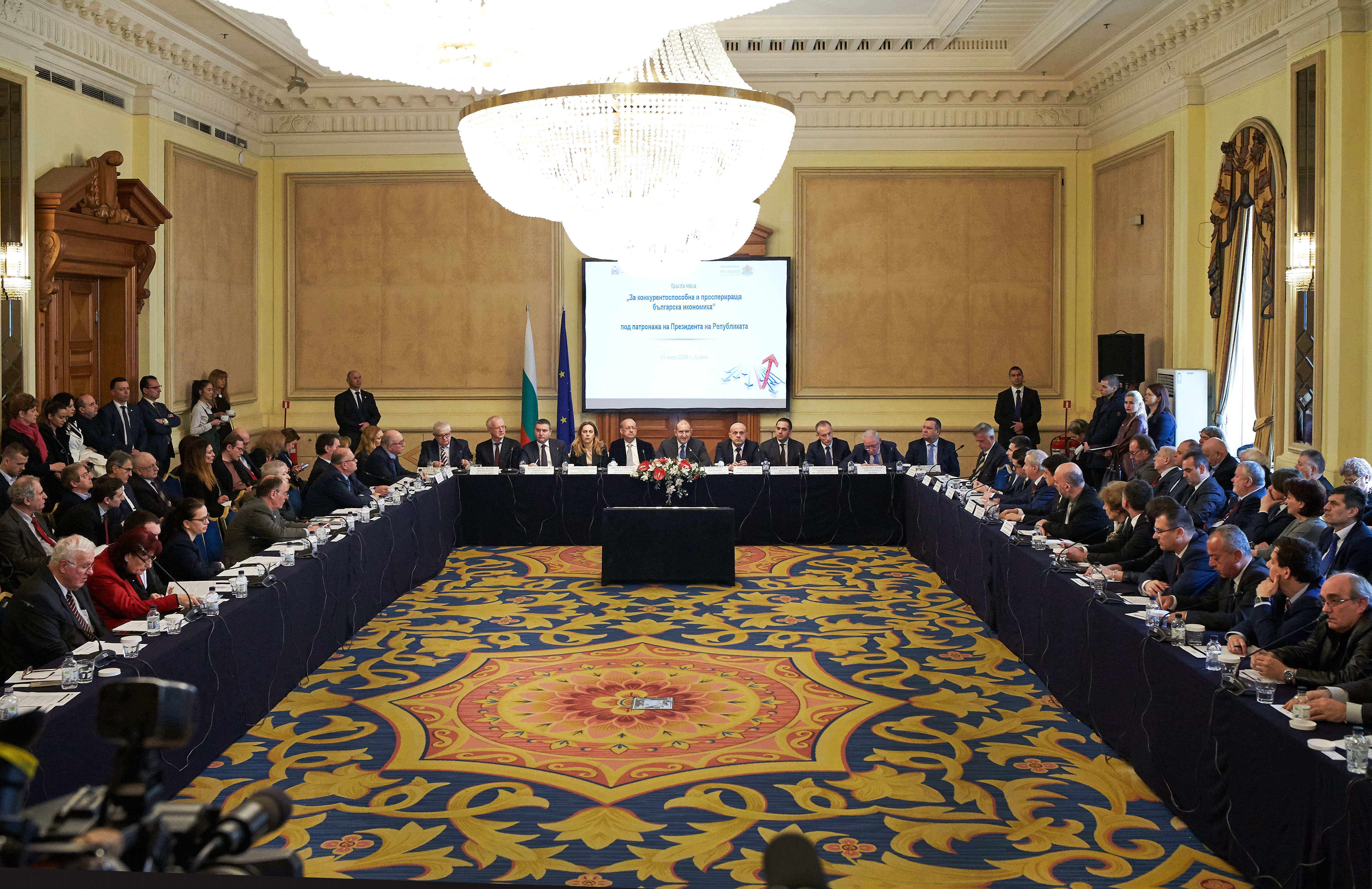“Achieving a high and sustainable growth economy is only possible in high added-value industries where science and innovation are leading. This will also achieve our country‘s goals for high income, high living standards, poverty eradication and inequalities, quality infrastructure, education, health care.”
With these words, the President of the Republic of Bulgaria Rumen Radev opened the round table “For Competitive and Prosperous Bulgarian Economy”, organized by the Bulgarian Industrial Capital Association (BICA), the Bulgarian Industrial Association (BIA) and the Bulgarian Chamber of Commerce and Industry (BCCI). The forum was held today, March 14, 2019, in Sofia Hotel Balkan, with the participation of Deputy Prime Ministers Tomislav Donchev and Mariana Nikolova, the Minister of Economy Emil Karanikolov, the Minister of Finance Vladislav Goranov, the Minister of Education and Science Krasimir Valchev, and Chairmen of the Parliamentary Committees on Economic Policy and Tourism - Petar Kanev, and Labor, Social and Demographic Policy - Hassan Ademov, heads of branch organizations, owners and managers of companies from different sectors of the economy.
In his speech, President Rumen Radev pointed out that our economy faces a number of serious challenges - both internally and especially globally, so structural changes and strategic decisions are needed. According to the head of state, the most important thing in creating a strong and competitive, Bulgarian economy is the open and timely dialogue between all the actors in this process - the state, business, education and science. According to Rumen Radev, for attracting investors and strategic ones in particular, is not enough only to have low taxes and low labor costs - advantages that have been significant until a few years ago.
According to BIA’s President Radosvet Radev “a good business climate requires: efficient administration, low level of corruption, stable tax system, stable legislation and a clear regulatory environment, high level of security and effective justice”. He quotes data from BIA’s survey, which show that 72% of changes in legislation are made through transitional and final provisions of other laws. In addition, it is common practice that mandatory coordination of bills with the National Council for Tripartite Cooperation is circumvented by submitting drafts for changes by MPs instead by the Council of Ministers. “This “short track” is a preferred way to quickly push most often lobbyist of populist changes. Thus, in a completely legal, but not so ethical way, the opinion of social partners is ignored”, added BIA’s President.






